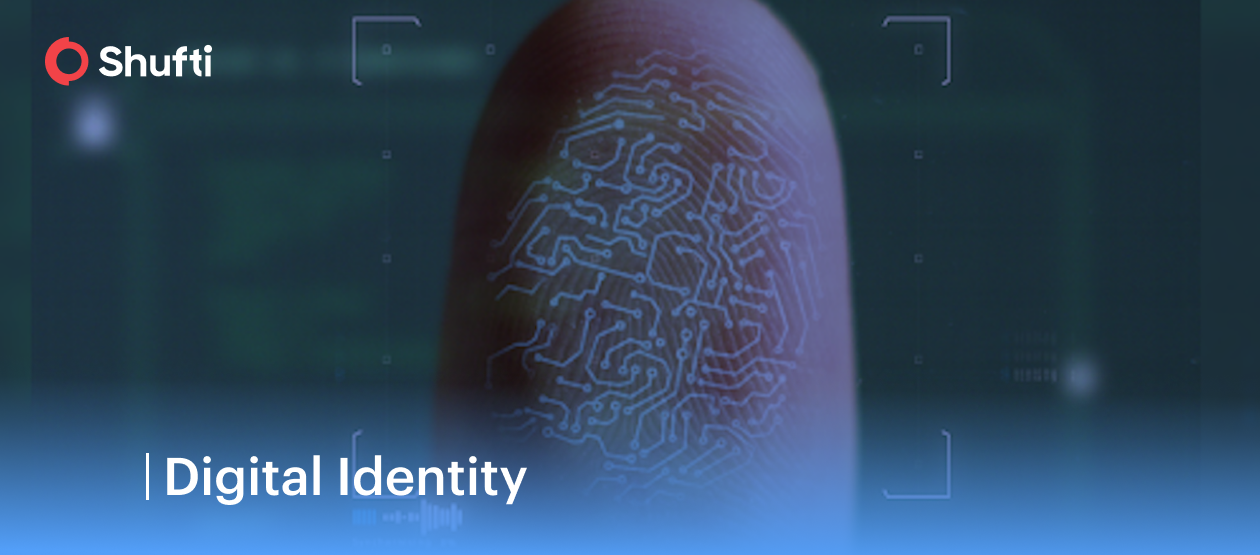Digital Identity

With the explosive growth of digital platforms, industries around the world are facing a parallel surge in threats such as money laundering, identity theft, and terrorist financing. For organizations across financial services, eCommerce, gaming, and more, protecting customer identity is paramount to the company and industry at large. At the core of this effort is digital identity verification, a vital part of secure and compliant onboarding in today’s interconnected world.
What Is a Digital Identity?
A digital identity represents who an individual is online through a collection of attributes that have been verified as accurate. According to the UK’s Digital Identity Trust Framework, this includes data such as full name, date of birth, address, and government-issued ID numbers. It is comparable to a secure online version of a passport that allows users to access services safely.
By verifying these attributes, businesses can ensure that the people they interact with are who they claim to be, and not someone using a synthetic or stolen identity. This helps reduce fraud, streamline customer onboarding, and build a more trustworthy digital ecosystem.
What Is Digital Identity Verification?
Digital identity verification (IDV) is the process of confirming a person’s identity remotely using digital tools. This often involves checking official documents, such as passports, driver’s licenses, or national IDs, against trusted databases to ensure accuracy and legitimacy. In some cases, utility bills or bank statements are also used to confirm address or financial information.
Modern IDV platforms enhance this process with biometrics. For example, a live selfie is compared to the photo on an identity document to confirm that the person submitting it is the legitimate holder. This adds a powerful safeguard against impersonations, deepfakes, and other forms of identity fraud.
Where Identity Verification Matters Most
Many industries now rely on digital identity verification to meet regulatory requirements, reduce fraud, and improve customer trust. Some of the most common use cases include:
Financial Services
Banks, credit unions, fintech companies, crypto exchanges, insurance providers, and investment platforms all use IDV to comply with Know Your Customer (KYC) and Anti-Money Laundering (AML) regulations. It also helps create smoother, faster digital onboarding experiences.
iGaming and eSports
Gaming companies use identity verification to prevent underage users from accessing violent or age-restricted content. This not only supports responsible use, but also helps companies avoid regulatory fines.
Online Gambling and Betting
These platforms use IDV to block minors and prevent fraudulent activities such as bonus fraud and identity theft. In many countries, regulators require proof of age and identity before users can place bets or withdraw winnings.
Alcohol and Tobacco Sales
Retailers of alcohol, tobacco/vaping products, and similar goods must verify age to prevent underage sales. Digital identity checks are now a best practice for online stores that sell these items.
Real Estate
The real estate sector is a known target for money laundering. Whether it’s renting, buying, or selling, IDV helps confirm identities and uncover suspicious activity before transactions are finalized.
Key Trends in Identity Verification
Digital identity verification is evolving quickly. Some of the latest global trends include:
- Accelerating biometric adoption: Facial recognition, voice biometrics, and behavioral analytics are becoming commonplace in onboarding and fraud detection.
- Artificial intelligence driven risk-based decisions: AI tools assess patterns in user behavior, device signals, and document authenticity to flag anomalies in real time.
- Reusable digital identities: Government-issued e-IDs, along with secure digital wallets, allow users to store verified credentials and reuse them across multiple platforms and services. The Adhaar system in India is currently the world’s largest e-ID system with 1.3 billion enrollees.
- Privacy-focused designs: Blockchain-based identity systems and self-sovereign identity models are gaining traction for their ability to minimize data collection and give users full control over their personal information. These technologies enable individuals to share only what is necessary for verification while keeping the rest of their data private and secure.
Governments are also stepping up. Europe’s eIDAS 2.0 regulation and the UK’s upcoming trust framework aim to standardize digital ID systems and promote cross-border interoperability. These changes are setting the stage for more secure and user-friendly verification practices worldwide.
Final Thoughts
The digital identity landscape is no longer confined to regulatory compliance or fraud prevention. It is quickly becoming a defining factor in how trust, access, and safety are built into digital transitions across borders and industries. As users grow more privacy-conscious and fraudsters become more sophisticated, the demand for smarter, more adaptive solutions continues to rise.
Organizations that approach identity verification as a strategic priority, not just a technical hurdle, will be better positioned to lead. Whether through biometrics, blockchain, or reusable credentials, the future belongs to businesses that can deliver secure, seamless user experiences without compromising data integrity or customer trust.

 Explore Now
Explore Now






